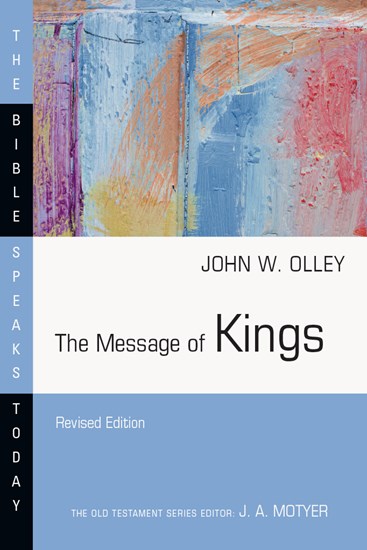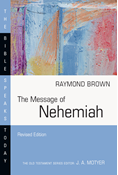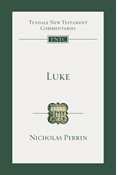
|
The Message of Kings
paperback
|
- Length: 400 pages
- Dimensions: 5.5 × 8.25 in
- Published: June 21, 2022
- Imprint: IVP Academic
- Item Code: A0471
- ISBN: 9781514004715
-
Other Retailers:
Amazon*
*affiliate partner
At the beginning of 1 Kings, Solomon's reign brought peace, prosperity, dynamic international trade, and a magnificent center of worship. By the end of 2 Kings, the people faced a complete reversal: they and their king were in exile, and Jerusalem and the temple lay in ruins. How can this story, told by the very people who suffered the defeat, be of value today?
In this Bible Speaks Today volume, John Olley shows how the two books of Kings retell the past as preached history, addressing the exilic situation of the original readers. Within the account of paths leading to short-term success but ultimate failure, there are pointers of hope, of God's continuing purposes and promises, and of the people's response.
In rich and often surprising ways, the narrative in Kings is part of the history that has shaped the faith of Christian believers. Everyday life, along with the turmoil of national and global events, is the arena in which God's people are called to worship, trust, and obey him. The books of 1 and 2 Kings continue to throw light on these issues for readers in every generation.
Used by students and teachers around the world, The Bible Speaks Today commentaries are ideal for those studying or preaching the Bible and anyone who wants to delve deeper into the text.
CONTENTS
General preface
Author’s preface
Commentaries and other works
Introducing 1 and 2 Kings
Chronology
A. Solomon’s reign (1 Kings 1–11)
1. Solomon becomes king (1:1–2:46)
2. Setting the scene (3:1–3)
3. Receiving and demonstrating wisdom (3:4–4:34)
4. The temple—building and dedicating (5:1–8:66)
5. After building the temple (9:1–11:43)
B. Division—the first 160 years (1 Kings 12:1–16:28)
6. Leadership: power, pragmatism and God’s evaluation (12:1–14:20)
7. Two nations and eight kings: similarities and difference (14:21–16:28)
C. Elijah and kings (1 Kings 16:29–2 Kings 2:25)
8. Elijah confronts crisis (16:29–19:21)
9. Ahab and some prophets—leading to death (20:1–22:50)
10. Ahaziah king of Israel and Elijah (1 Kings 22:51–2 Kings 1:18)
11. Elijah’s ascension and the transition to Elisha (2:1-25)
D. Elisha and individuals, kings and revolution (2 Kings 3–13)
12. Kings of Israel, Judah and Moab—and Elisha (3:1-27)
13. Elisha: agent of Yahweh’s compassion (4:1–6:7)
14. Elisha and Arameans (6:8–8:15)
15. Revolution and reform in Israel and Judah (8:16–13:25)
E. To the end of Israel (2 Kings 14–17)
16. Kings of Judah and Israel (14:1–17:6)
17. Understanding change to Israel and in Israel (17:7-41)
F. From trust to exile—to the end of Judah (2 Kings 18–25)
18. Hezekiah and trust (18:1–20:21)
19. Apostasy of Manasseh and Amon (21:1-26)
20. Josiah and wholehearted turning to God (22:1–23:30)
21. The end comes quickly (23:31–25:26)
22. A glimmer of hope in Babylon (25:27-30)












